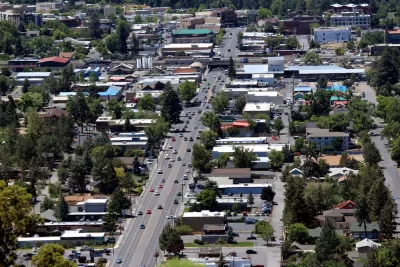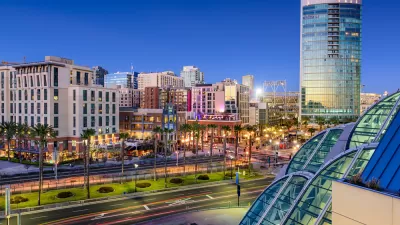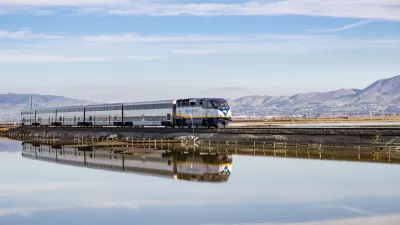Financial projections from the state's Department of Transportation suggest the agency does not anticipate a marked reduction in driving in the next decade.

Despite a mandate to reduce carbon emissions by 45 percent across state agencies, the Oregon Department of Transportation's financial projections show little progress, reports Rachel Monahan. Based on gas tax revenue projections, "ODOT has made commitments to the financial markets where it sells bonds to finance road projects that make clear the agency is actually counting on emissions to continue. The revenue forecast doesn’t say emissions, but it readily translates to exhaust coming out of tailpipes."
According to ODOT projections, cars and trucks will emit 19.3 million metric tons of CO2 annually. But to meet the 45 percent goal, the state would need to reduce emissions by 12 million metric tons each year. An ODOT spokesperson acknowledged the pattern, saying "ODOT revenue forecasts are based purely on consumer patterns and historical data" rather than future goals. The projections also do not account for potential reductions in vehicle miles traveled thanks to congestion pricing schemes and other initiatives aimed at reducing driving.
FULL STORY: ODOT Projects Gas Guzzling Won’t Decline, Even as It Pays Lip Service to Meeting Climate Goals

Maui's Vacation Rental Debate Turns Ugly
Verbal attacks, misinformation campaigns and fistfights plague a high-stakes debate to convert thousands of vacation rentals into long-term housing.

Planetizen Federal Action Tracker
A weekly monitor of how Trump’s orders and actions are impacting planners and planning in America.

In Urban Planning, AI Prompting Could be the New Design Thinking
Creativity has long been key to great urban design. What if we see AI as our new creative partner?

California Creates Housing-Focused Agency
Previously, the state’s housing and homelessness programs fell under a grabbag department that also regulates the alcohol industry, car mechanics, and horse racing.

Chicago’s Ghost Rails
Just beneath the surface of the modern city lie the remnants of its expansive early 20th-century streetcar system.

Baker Creek Pavilion: Blending Nature and Architecture in Knoxville
Knoxville’s urban wilderness planning initiative unveils the "Baker Creek Pavilion" to increase the city's access to green spaces.
Urban Design for Planners 1: Software Tools
This six-course series explores essential urban design concepts using open source software and equips planners with the tools they need to participate fully in the urban design process.
Planning for Universal Design
Learn the tools for implementing Universal Design in planning regulations.
planning NEXT
Appalachian Highlands Housing Partners
Mpact (founded as Rail~Volution)
City of Camden Redevelopment Agency
City of Astoria
City of Portland
City of Laramie





























